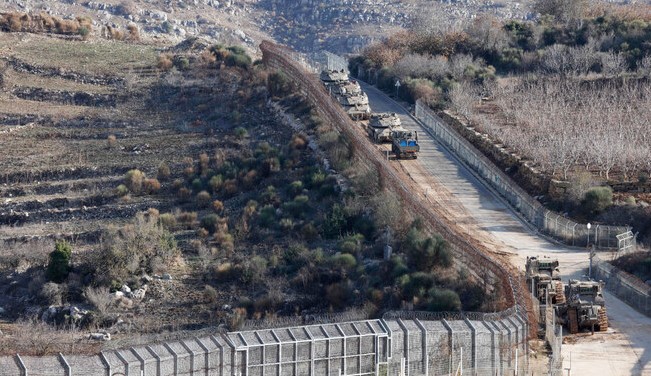Violation of Sovereignty in the Golan Heights
A fresh wave of tension has gripped the Middle East as Israel’s military seized the strategically significant buffer zone near the Golan Heights following the overthrow of Syria’s government. This move, viewed as an illegal land grab under international law, has drawn widespread condemnation from regional powers such as Qatar, Saudi Arabia, and Iraq, along with global institutions like the United Nations.
The Golan Heights, a region originally belonging to Syria, has been a point of contention since Israel occupied most of it during the 1967 war and later annexed it in 1981. International law prohibits the acquisition of territory by force, yet Israel continues to assert its claim. On Sunday, Israeli forces entered the buffer zone—a demilitarized area established under a 1974 ceasefire agreement—to solidify their control over this strategic location.
Countries in the region have sharply criticized this move. Qatar’s Foreign Ministry labeled it a “dangerous development” and a “blatant attack” on Syria’s sovereignty, warning that it risks plunging the region into greater violence and instability. Saudi Arabia, echoing these concerns, described the incursion as a continuation of Israel’s long-standing violations of international law, which undermine Syria’s chances of restoring its unity, security, and stability. Iraq’s Foreign Ministry also denounced the actions, calling them a “grave violation” of Syria’s territorial rights and urging the UN Security Council to intervene decisively.
The United Nations has also expressed alarm. Spokesman Stéphane Dujarric described Israel’s move as a violation of the 1974 disengagement agreement, pointing out that Israeli forces are still occupying parts of the buffer zone. The UN peacekeeping force in the Golan Heights (UNDOF) has reportedly informed Israel that these actions are in breach of the agreement.
Intensified Air Strikes across Syria
In a parallel escalation, Israel has launched widespread air strikes targeting strategic locations across Syria, claiming these actions are necessary to address security threats. Since Sunday, Syrian military and security installations have faced relentless bombing, with reports of strikes on airbases in Damascus, Homs, and Qamishli. Additional strikes targeted the coastal city of Latakia, known for its military infrastructure, as well as research facilities and security complexes in the capital city of Damascus.
The scale of the attacks is unprecedented, with the Syrian Observatory for Human Rights, a UK-based war monitor, reporting that Israel has conducted more than 100 air strikes on various military sites across Syria in a single day. According to the monitor, the primary objective of these strikes is to dismantle Syria’s remaining military capabilities, which Israel perceives as a potential threat.
Israel’s military has not officially claimed responsibility for the air strikes, in line with its usual practice regarding operations in Syria. However, Israeli officials have justified their actions as necessary measures to neutralize emerging threats near their borders. Israel’s ambassador to the United Nations clarified that the military deployment and air strikes are “limited and temporary” actions aimed at safeguarding Israeli citizens.
Global Condemnation and Regional Unrest
The international community has been quick to denounce Israel’s recent actions. The United Nations has strongly criticized the seizure of the buffer zone, with its peacekeeping forces in the region warning that these actions breach international agreements. Despite these warnings, Israeli forces remain entrenched in the area.
Regional powers have voiced their alarm over the growing crisis. Qatar, Saudi Arabia, and Iraq have issued statements highlighting the broader implications of these developments for peace and stability in the Middle East. Qatar emphasized that Israel’s actions undermine not just Syria’s sovereignty but also the fragile security dynamics of the region. Saudi Arabia called on the global community to take a firm stance against what it described as a deliberate effort to destabilize Syria. Iraq has urged the United Nations to fulfill its responsibilities and ensure that Israel withdraws from the disputed areas.
This escalation follows years of underlying tensions over the status of the Golan Heights. While Israel claims the region is vital for its security, the international community, including the United Nations, continues to regard the Golan Heights as Syrian territory. The current developments have reignited this long-standing dispute, with the latest land grab adding another layer of complexity to the region’s fragile geopolitical landscape.
As Israeli air strikes persist and international condemnation mounts, the Middle East finds itself once again teetering on the edge of heightened conflict. The Golan Heights, with its strategic importance and symbolic value, remains at the center of these escalating tensions, underscoring the enduring volatility of the region.

